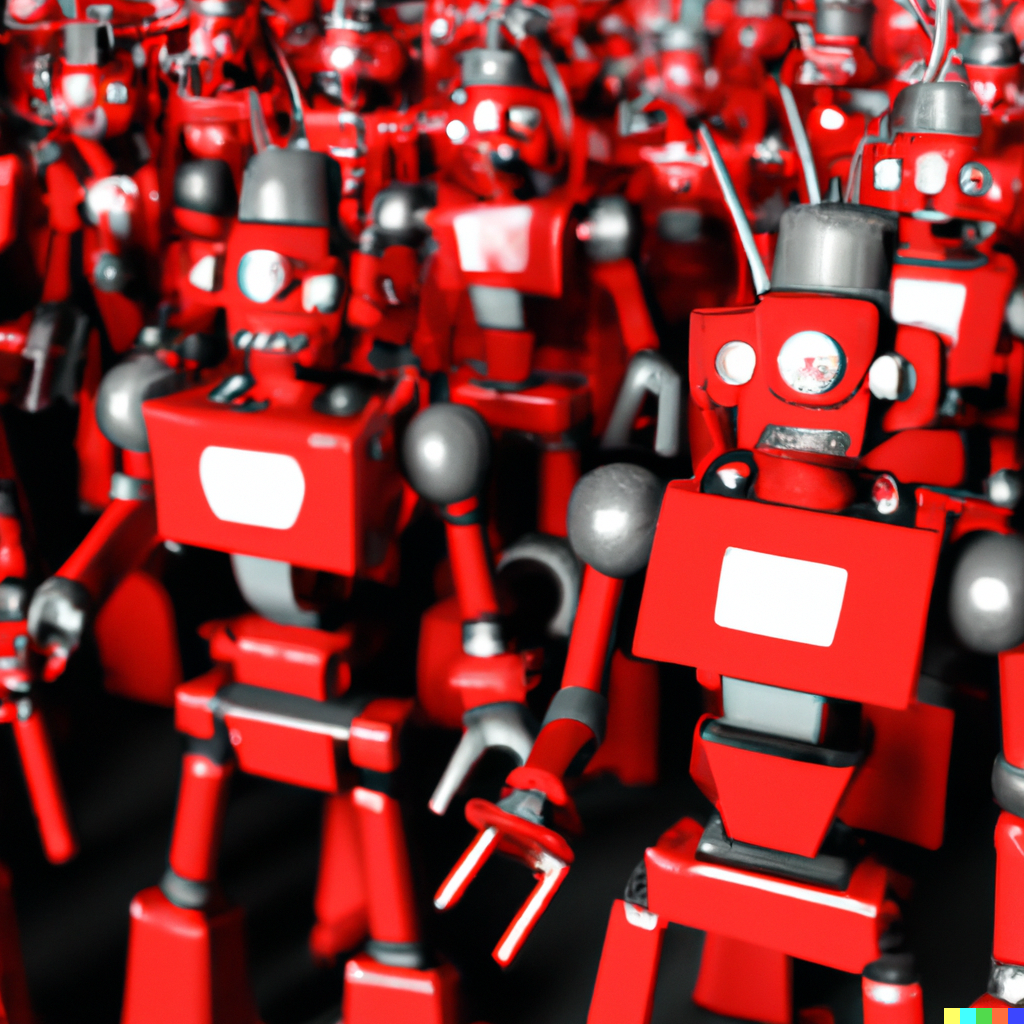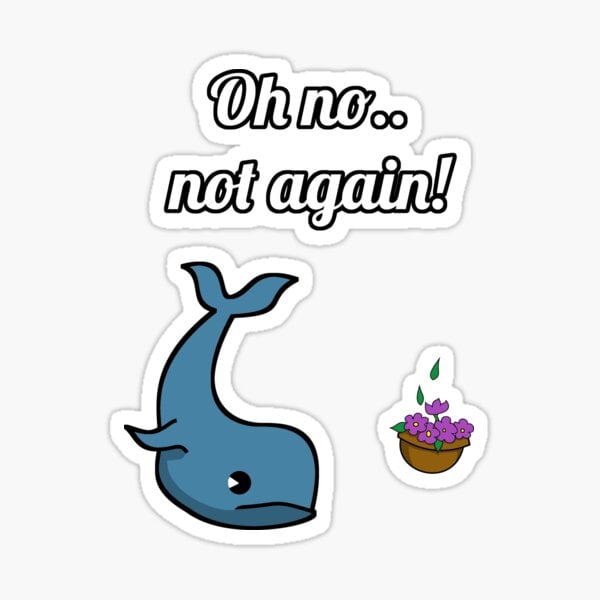EDIT: Let’s cool it with the downvotes, dudes. We’re not out to cut funding to your black hole detection chamber or revoke the degrees of chiropractors just because a couple of us don’t believe in it, okay? Chill out, participate with the prompt and continue with having a nice day. I’m sure almost everybody has something to add.
Quantum entanglement. Having two particles latched in the same state even if separated by light years distance is something I currently cannot believe. Maybe too dumb, but my belief is that it ‘has’ to be some experiment error.
Birth order effect on personality.
It smells like predetermined horoscope nonesense.
The idea that SSRI antidepressants work by increasing serotonin levels. If that were the case, why don’t they start working immediately? Instead, most people don’t see positive effects for several weeks.
They can’t work immediately because the body isn’t producing enough serotonin to have an immediate effect, nor would you want that. Over time serotonin reuptake is slowed and eventually this has a cognitive effect. That doesn’t help everyone but that doesn’t make them ineffective.
Plus the idea that SSRIs work, period. They only work slightly better than placebo, and they count them as “working” as long as they help with a single symptom. So if they don’t help your depression at all, but they do help with your insomnia, they put that in the “it worked!” pile. That’s why suicide risk sometimes increases on SSRIs. They do nothing for your crippling depression except increase your motivation, so before you were depressed and couldn’t accomplish anything, and now you’re depressed, but also have the wherewithal to follow through on your suicide plan.
I have been having some mental health issues, and I was reading about this the other day. I was going through wikipedia with the various types of antidepressants, and it seems that SSRIs are just barely better than placebo, or even in studies not even better than placebo.
I know there are multiple classes of antidepressants out there. Are there any that do a better job, even if they are not as common?
Placebos just prove that your body can heal you, it just chooses not to.
So then what does one do to heal it?
senzu bean
There’s different definitions of depression, for one.
And “do a better job” is going to be defined by the individual.
But there are SSRIs, SNRIs and SDRIs like Wellbutrin. They have vastly different side effects and play on different systems (serotonin, norepinephrine and dopamine) many people find SNRIs to be more effective, but again it’s all the individual.
I duno about any that work, but if a dr offers you effexor tell them hell fucking no. Everyone I have talked to about it agrees its fucking absolutely awful. Worst drug I have ever taken.
What sort of problems did you have with it?
Effexor has some awful side effects. I have seen people complain about brain zaps but I didn’t get them. For me I kept getting this weird lagging feeling in my body, like my perception of my limbs was lagging behind where they were in this very weird feeling way. Its very hard to explain but it was very uncomfortable feeling, every movement of my head was accompanied with this weird feeling. After I quit the drug the issue persisted for months after, it was legit fucked I was scared it would never go away but eventually it did.
Also effexor triggered multiple manic episodes where I was hearing voices and didn’t sleep for a week. Like legit psychosis. I haven’t had any episodes that bad before taking effexor and none since I quit it as well. I can honestly say it made my mental health issues infinitely worse, shit is a demon drug. TBH I don’t fuck with psych drugs anymore because of my experience with effexor.
If you’re suffering from depression, look into Transcranial Magnetic Stimulation (TMS). After over a decade on SSRIs and other meds had failed, it turned my life around in six months. Literally life saving.
The effectiveness is proven (at much better rates than SSRIs), but the exact mechanism is under study.
But… There was a recent study that suggested that many cases of depression are caused by misordered neuron firing, where the emotional center of the brain fires before the “imagine the future” bit finishes firing. Normally, when a healthy brain imagines a future state, the emotional center fires in response to our anticipated feeling. (Imagination: We’re going to the movies. Emotions: FUN) But in a depressed brain, the emotional core fires immediately, resulting in the current, crappy mood being applied to every imagined future. (Emotions: Everything is shit. Imagination: We’re going to the movies?)
TMS may work as well as it does because one of the things it does is increase neuroplasticity, allowing the brain to correctly order the firing of our emotional response to imagined futures.
Anyway - TMS is right at the edges of our understanding of treating depression, but it really does work for a supermajority of patients.
For me, I went from having literally lost all emotions and being essentially dead (and being willing to die), to feeling… normal. I haven’t had a major depressive episode in the two years since. It’s been liberating.
actually studies have shown SSRIs make you more depressed than placebo
Serotonin hypothesis never really held water. Congrats on guessing right, probably, we’ll only see in some years from now https://www.science.org/content/blog-post/how-antidepressants-work-last
I was listening to a sleep scientist the other day and they were saying that one thing we know is that depressed people have more rem sleep on average, and SSRIs decrease the amount of rem sleep.
If it is something sleep based that goes some way to explaining why it takes time to have an effect. Building up or wiping out a sleep debt can’t happen instantaneously.
That’s interesting… because I always thought that REM sleep was the most important part of sleep, and more was better.
In fact, I read an article once that suggested that REM sleep was when our spinal fluid flushed all the waste material out of our brains at night (which leads to the types of dream that occur during REM sleep), which is also a process that prevents brains from being clogged with waste material.
I always thought that our brains being filled with waste material was part of depression, and that flushing out that waste material would help our brains function more correctly.
Sounds like the opposite - like, our depressed brains are depressed because they think too much?
Characteristic sleep-EEG changes in patients with depression include disinhibition of rapid eye movement (REM) sleep, changes of sleep continuity, and impaired non-REM sleep.
https://www.ncbi.nlm.nih.gov/pmc/articles/PMC6386825/
Yeah, I think we have multiple types of sleep because we need them, and if you’re getting too much rem sleep at the expense of other types it’s going to cause problems.
Interesting!
That mothers shouldn’t co-sleep with infants. Every other primate I know of co-sleeps with their offspring. Until very recently every human mother co-slept with her infants, and in like half of the globe people still do. Many mothers find it incredibly psychologically stressful to sleep without their infant because our ancestors co-slept every generation for hundreds of thousands of years.
I would bet money that forcing infants to sleep alone has negative developmental effects.
The reason for this is that we tend to sleep deeper now than our ancestors. Because of this, we are more prone to roll onto a baby, and not wake up.
It can still be done, you just have to avoid things like alcohol, that stop you waking. You also need to make sure your sleeping position is safe. Explaining this to exhausted parents is unreliable, however. Hence the advice Americans seem to be given.
Fyi, if people want a halfway point, you can get cosleeping cribs. They attach to the side of the bed. Your baby can be close to you, while also eliminating the risk of suffocating them.
I think something on the UK’s NHS implied the risk is primarily for mothers with various kinds of problems (including drug or alcohol abuse). Made me wonder if it’s largely recommended for everyone to cover the many people who are at risk but don’t want to think they are.
Relevant Graham Norton https://m.youtube.com/watch?v=nKbjBciZBZU
A lot of the advice is almost insultingly obvious. You get treated like you have a single digit IQ. After a couple of months, I fully understand why we were treated like that! It’s a fight to keep your iq in double digits!
The baby shaking one is the big one. It’s obvious, you don’t shake your baby. It’s also obvious that they can be safe, even while screaming. After 2 hours of constant crying, combined with sleep deprivation, I fully understand why they reiterated not to shake your baby, the urge was alarmingly strong! It also made sense why they pointed out you could leave them to scream, if you really needed to. So long as they are clean safe and fed, 10 minutes down the garden is completely acceptable.
With the original advice, telling when it will apply to you is harder than you think. The default advice has to be to play it safe. Some can be deviated from, some can’t. Deviations must be consciously made however.
Maybe if you can avoid stuff like alcohol (easy for most) but also you can avoid sleep deprivation - way harder with little to no maternal leave and forget about paternal leave here in the US.
If you (Royal you, not parent commenter) can live with yourself if a tragedy occurs on your watch while you are flaunting medical advice, then go ahead and risk it, but otherwise yes! Buy the bedside attached crib!
In the UK, it’s not an absolute no, but a “be careful”. Interestingly, my wife’s sleep habits changed considerably. She was instinctively aware of where our baby was, even while asleep.
The main dangers seem to be either the dad (my instincts were far less affected) or a sedated mum. It also becomes a lot less risky when the baby can move. Our daughter was perfectly capable of making her comfort concerns felt.
It’s not zero risk, but it’s far lower than you might think. New mother sleep deprivation is quite different to normal sleep deprivation. I see why the default advice is what it is, however.
deleted by creator
deleted by creator
Fyi, you triple posted.
Thanks. I was having connection troubles.
The other thing is SIDS, if the baby can’t lift their head from a suffocation position they suffocate.
We have ours sleep in a cosleep crib beside the bed so you get the closeness and can make contact in the night.
What I’ve heard was that it is to build independence for the child, so the parent can leave the child to sleep and do something else. It depends on the age I guess.
I don’t think that we currently know enough about physics to say for sure that faster than light travel is impossible.
I think it’s likely that there are still scientific breakthroughs to be discovered that will make currently impossible things possible.
That consciousness arises from matter as some emergent phenomenon. Integrated information theory, micro-tubules, or whatever: no.
I believe consciousness is fundamental.
The problem with consciousness is that everyone has different idea what is is.
That’s the fundamental problem with everything, though.
I disagree with you, but that’s because your comment means something entirely different to me.
And I, in turn, accept your apology.
Thank you for subscribing to Cat Facts
How do you mean fundamental?
They probably mean that consciousness does not arrive from matter - that there is some other thing that causes consciousness, like another fundamental particle or whatever.
Essentially they are arguing for the existence of the “soul” or “spirit” in some fashion or another. Definitely unscientific as we have no evidence of such a thing.
That’s not scientifically proven though, just an idea.
I don’t believe scientific progress is analogous with human progress or can be used to “decode” morality, ie the science vs religion dichotomy I don’t believe in. I don’t think science or “reason” guides human societies for instance. This belief is a result of studying Hume and moral philosophy. I think science tells us what is but not what ought to be, and that gap is irreconcilable through science alone, yet it can inform our sense of right and wrong. I disagree with objective morality as well, so the popularization of this science=objective morality idea that Sam Harris has attempted I disagree with entirely. I’m much more aligned with Patricia Churchland’s ideas here, and her popularization she outlines in her book “Braintrust.” I don’t think, as some do, that measuring brain activity decodes human morality, because I don’t believe such a thing exists. I don’t believe human society is controlled and determined by rational actors, I have a more Darwinian and Maxian view on that. When people profess things like “politics should be scientific” I likely agree with their sentiment but I think “science” is not the reason why, and more of a distraction/lazy way to assert being morally right about something, which science can’t actually do because it requires an appeal to human notions of morality, which science cannot determine as it has no measure of which values we ought to hold.
That somehow the dozens of microphones all around us aren’t listening at all.
Homeopathy. All about it.
There is nothing scientific about homeopathy.
True - when it’s scientific, it’s called “Medicine”
“By definition”, I begin “Alternative Medicine”, I continue “Has either not been proved to work, Or been proved not to work. You know what they call “alternative medicine” That’s been proved to work? Medicine.”
— Tim Minchin, Storm
Right, but that can never be true for Homeopathy. It’s pseudoscience bullshit through and through. That said, many people conflate homeopathy with “natural remedies”, but that’s not what homeopathy is.
Homeopathy is built on the concept of “like cures like” and that as a solution becomes more dilute it becomes stronger. A newer idea (at least compared to homeopathy’s history) is that water has memory and that it “remembers” whatever it was mixed with in the past. They added this on to explain why diluting a solution so much that there’s virtually no chance of there being even a single molecule of the “medicine” left in it doesn’t actually make it not work because water remembers what you mixed it with.
So, say a person is suffering from poisoning. A typical homeopathic “cure” would be to take an amount of the poison, mix it with water, shake and stir it in a specific way, then dilute it with more water. Repeat lots of times, since the more dilute it is the stronger the “medicine” is.
Practitioners prey on the ignorance of their customers to swindle them out of their money for something that amounts to nothing more than a placebo. And while it’s possible that the placebo effect can have some beneficial effect, that doesn’t justify the existence of homeopathy.
God I hate this pseudoscience bullshit.
There’s absolutely nothing scientific about Homeopathy, despite what its practitioners would have you believe.
IQ score is a sham - the tests are quite fallible, and historically they were used as a justification to discriminate against people who are poorer or with worse access to education. Nowadays, I see it quite a lot in the context of eugenics, where some professors and philosophers attribute poor people being poor due to their low intelligence (low IQ score), and that they can’t be helped while rich people got where they are due to their intelligence (as in they have a high IQ score on average).
Full moons do not have an impact on people with mental illness, make weird things happen, increase work load, or increase the chance of going into labor. I have worked in three separate hospitals in three separate states and the consensus is: full moons bring out the crazies and the babies.
Unrelated - kind of - but I believe there are two documented cases of obscure programming bugs that manifest according to the phase of the moon!
deleted by creator
Hypothesis*, and it is very popular with nurses. Unfortunate, but people still believe many strange things.
It’s entirely confirmation bias. The crazies come out, must be a full moon. It isn’t? Oh, then it’s just a bad day. It is a full moon? See, I told ya. Full moon and no crazies? Didn’t even notice.
I have witnessed this exchange >.<
It’s not true. Your observations may be affected by confirmation, bias, or other things.
https://www.dukehealth.org/blog/myth-or-fact-more-women-go-labor-during-full-moon
However, barometric pressure can apparently induce labor
The first part is what my husband tells me.
I do recognize that Medical Laboratory Scientists are a very superstitious lot especially funny since our degree and certification include Scientist. Don’t say it’s slow or quiet because it’s getting to get stupid busy (and everyone will blame you). Don’t run quality control more than required because you are tempting failure and will have to do a look back of all the testing to make sure it was accurate. We jokingly put an elf on the shelf out that had FDA written on the hat and the FDA showed up for an unannounced inspection a week later. I’m a Lead and every time I bring my Lead work to the bench with me, we get so busy with patient samples and orders that I can’t touch it. All are definitely confirmation bias situations.
Statistics shows that the belief is wrong. It’s funny I think that despite the hard numbers the people working there still strongly believe it.
I believe there have been multiple studies that found that full moons affect most people sleeping and make sleep a bit harder
I sleep in a completely blacked out room yet I know when it’s near the full moon because my sleep gets very broken and restless.
The only difference between a full moon and a new moon is how much light it reflects towards the earth. The moon is still there. If there were some sort of magnetic or gravitational effect on you while you slept, the effect would be the same whether the sun was shining on the side you can see or not.
The reason there is a difference in how much light is reflected, is because the moon is in a different position. During a new moon, it’s on the day side of the earth (so in between the sun and the earth) while during a full moon, it’s on the night side.
So there could theoretically be a gravitational effect, although I don’t think it would impact anyone’s sleep.
If anyone is noticing a difference in sleep quality, it’s most likely indeed to do with the amount of light.
String theory always smelled funny to me. Don’t know if it’s still actively researched or if it fell by the wayside. Couldn’t care less! Lol
I mean, define “scientific”. A currently-held, consensus theory? Because it’s easy to find theories that were developed in accordance with scientific theory, held for a while, but discarded.
https://en.wikipedia.org/wiki/Aether_theories
In physics, aether theories (also known as ether theories) propose the existence of a medium, a space-filling substance or field as a transmission medium for the propagation of electromagnetic or gravitational forces. “Since the development of special relativity, theories using a substantial aether fell out of use in modern physics, and are now replaced by more abstract models.”
Don’t believe in, or can’t understand?
I don’t believe we understand the fundamental nature of time, or the universe - we are limited by our bodies, can’t perceive or even think about everything that probably exists. But I don’t distrust the math or research that scientists are doing. In terms of how it is presented to us laypeople I think profit has poisoned the message, it is impossible to be current and knowledgeable in the way you’d need to be to pull apart all that messaging.
If you mean what do you understand but still not believe? I am still not convinced radio is not magic. I understand how it works but what the heck? Magic.
Any “science” supported only by belief/faith or trust in authority that can’t be questioned.













